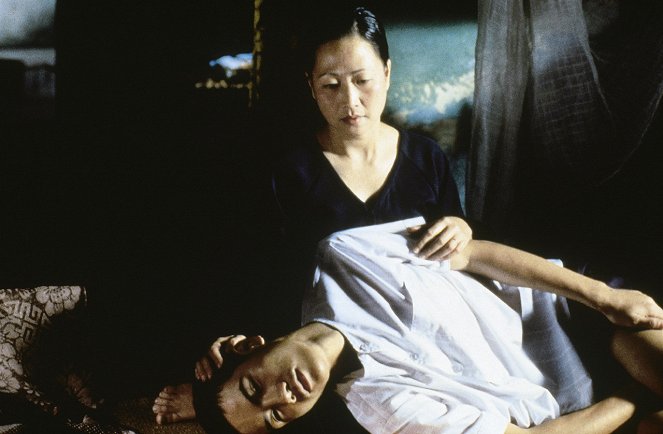Directed by:
Anh Hung TranScreenplay:
Anh Hung TranCinematography:
Benoît DelhommeComposer:
Tôn-Thât TiêtReviews (2)
When seen from the perspective of today, when Tran Anh Hung’s filmography already includes five titles, his second film appears in a new context. If we can deduce any generalisation from the films that he has made so far, it is that Tran alternates escapist, charmingly intimate portraits of everyday life and the emotional fluctuations of ordinary characters with the bleak and destructive reflexes of contemporary society and its dark sides. The Scent of Green Papaya, interlaced with nature motifs and everyday rituals, resonates with The Vertical Ray of Sun and, in principle, with Norwegian Wood, whereas the urban filth and existential decadence of Cyclo find their power in the post-colonial epic I Come with the Rain. In Cyclo, Tran presents a picture of organised crime in contemporary Ho Chi Minh City (Saigon), focusing on the way individuals take on personalities and emotions as their own in the given setting. The basis of the narrative has two parts, which complement each other like the two sides of the same coin. The main protagonist, a young cyclo (i.e. pedal-taxi driver) who is drawn into the world of crime against his will, in fact personifies the past of the emotionally dejected mobster played by Tony Leung, who represents the danger that the protagonist may encounter when operating on the edge of the law. Similarly, the protagonist’s fragile and innocent sister has her own opposite in the form of the gang leader. Tran seems to inadvertently suggest that the basis of a career in organised crime is to rid oneself of emotions, but people are essentially unable to do that. The gang leader clinging to her son, the hitman singing lullabies to his victims, the sensitive poet placed in the role of a heartless pimp and thug: all of them have emotions, but in their world, emotions are a weakness that can be fatal. The film thus becomes both a metaphorical and direct struggle for the soul of the protagonist, who alternately resists and gives in to this environment. Tran presents all of this in a visually gripping form that, however, does not slip into empty gestures. For example, he seems to incidentally look away Cycle from the violence and criminal practices, giving us a view from a window or across the edge of a roof in order to show us that everything we see is not in some fictional world, but literally right next to busy streets in the course of everyday life.
()
When you know nothing about Vietnamese cinema, it's quite nice to be surprised, especially when it's in a positive direction. This film is exactly the kind of example of quality filmmaking that I would not have expected from Vietnam. It may be somewhat gratuitously gritty at times, but it definitely adds to the outcome, even though you might feel like you've seen something similar. But certainly not from Vietnam.
()

